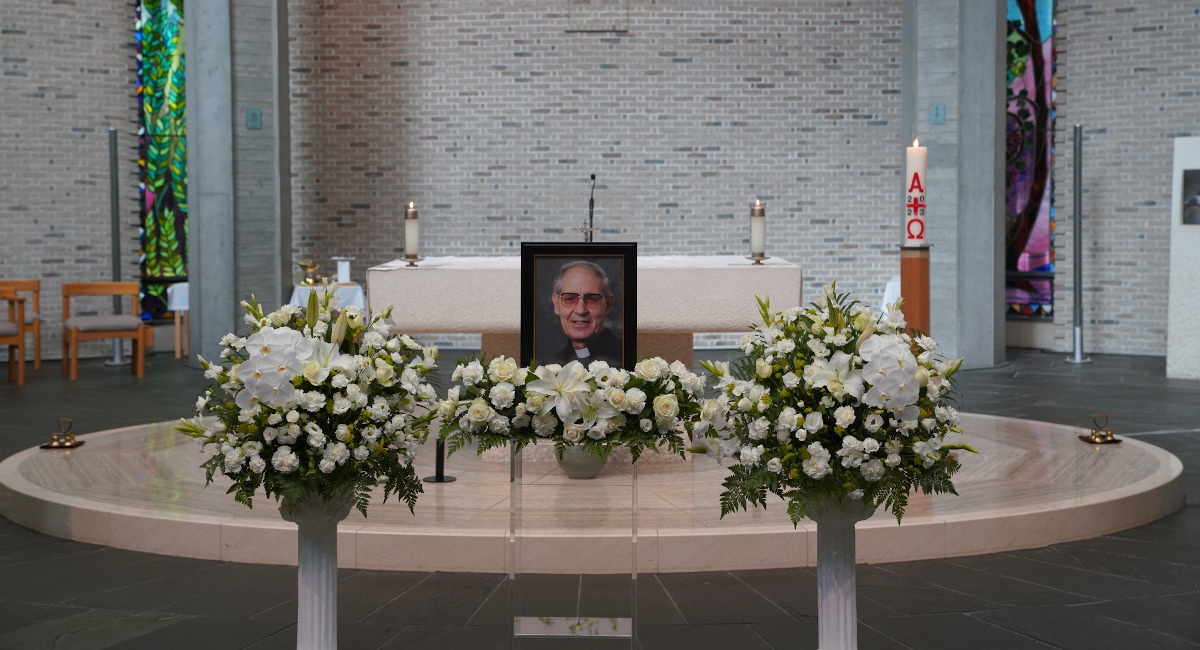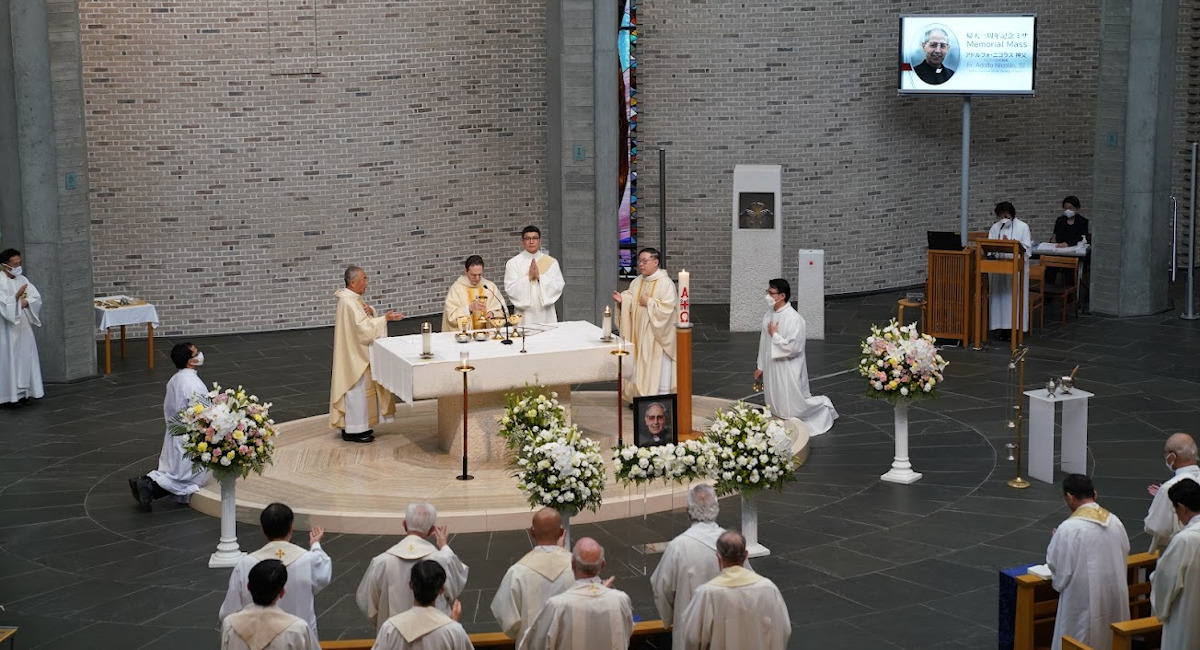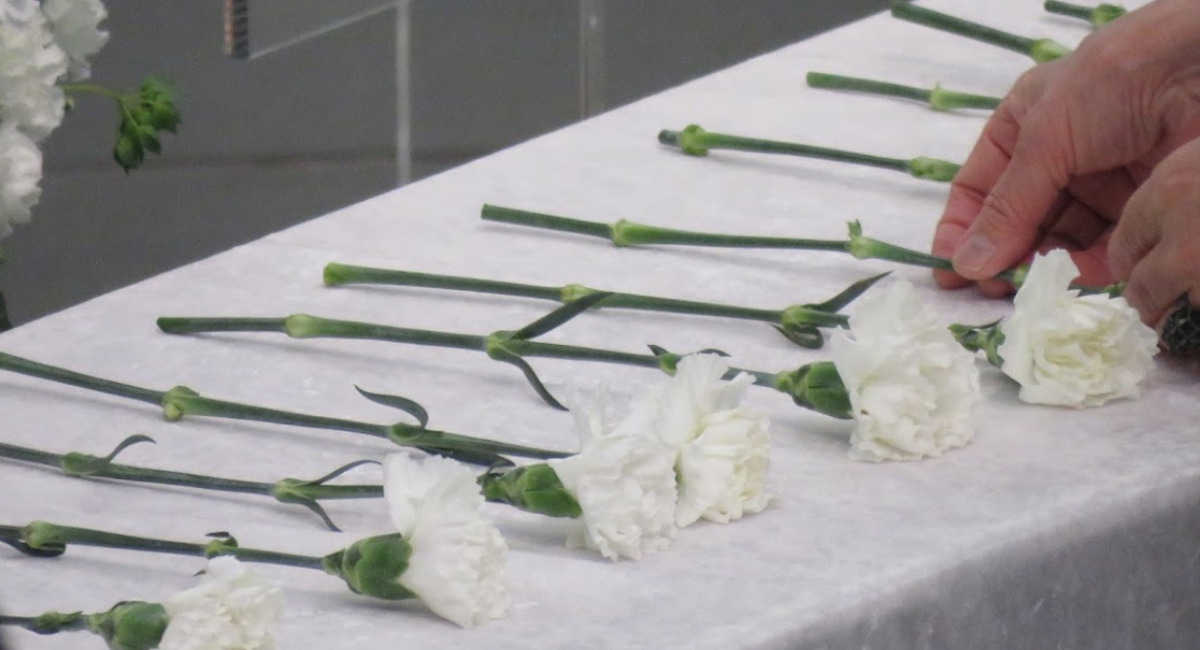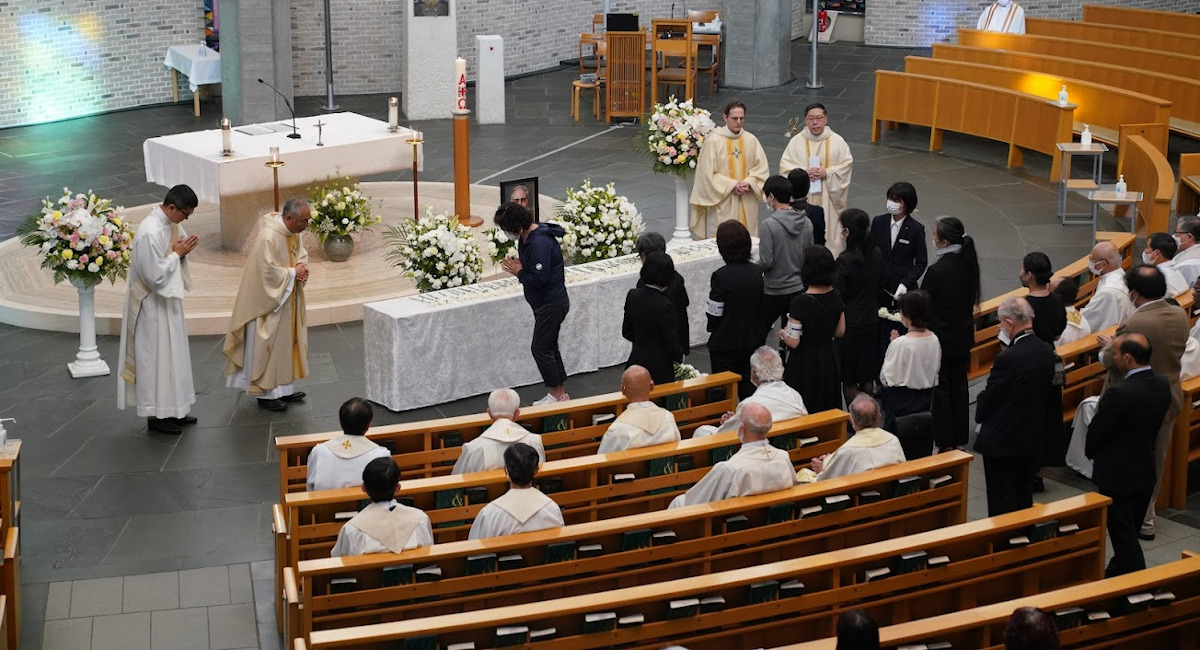
As we gratefully remember Fr Adolfo Nicolás on the third anniversary of his going home to the Lord, it is fitting that our Gospel should speak of service, which was one of Nico’s favorite words. “Service” is, of course, a deeply Ignatian word. At La Storta, Ignatius heard the eternal Father say to Jesus, “I want you to take this man as your servant.” Jesus, in turn, said to Ignatius, “I want you to serve us.” In the climax of the Spiritual Exercises, the Contemplation to Attain Love, Ignatius invites us to pray for the grace that “I may be able to love and serve the Divine Majesty in everything.” (SpEx 233). Nico himself, in a kind of spiritual testament before his final return to Japan and the infirmary, wrote: “I have always liked texts that invite us to serve others,” and concludes by calling the final sentence of our Gospel today “the central text of service.”
I think our Gospel, which one Scripture scholar calls “the Parable of the Obedient Servant,” reminds us of three aspects of service, three dimensions that Fr. Nicolás lived and gave witness to with his life.
First, the servant in the parable is completely dedicated to the service of his Master. He plows the field, he tends the sheep, he comes home and prepares the noonday meal of his Master, without drama, without hesitation, without complaint. The servant shows us that service is the total gift of oneself in response to the needs of others.
This is how Nico lived. He did not want to become General. He kept on insisting to everyone that he was too old. On the day of Nico’s election during GC 35, Fr. Ben Nebres, who was seated next to him, noticed that as the votes were being counted and Nico heard his name called out over and over again, his head and shoulders kept sinking lower and lower, as though an enormous weight was being placed on him. But when the counting was finally over, and it was clear that he was the choice of the brethren, Nico straightened up and walked calmly forward to accept the will of the Congregation.
A year later, in a homily he preached in Manila, he explained what was going on in his heart during that lifechanging moment. “When I was elected General,” he confided, “I felt this was the last chance the Lord was giving me to finally ‘Give it all.’ I never contemplated the possibility. As the day approached and I began to see that things could get complicated, I was convinced I could easily decline and withdraw. But when the hour came, I could not flee. . . . I felt deep down in my heart that this was the last call. You take it, or miss the flight of your life. It was time to give, time to love and serve, time to be grateful for everything received, time to give back, or rather, to let the Lord take back.” He summarized his response thus: “The final word of Ignatius has always been: Give it all or go your way.”
It is no wonder then, that, in Nairobi, in 2012, Nico insisted that the health and future of the Society of Jesus depended only on this: whether Jesuits continue to have “the ability to give absolutely everything to the Lord, as Ignatius did.” He noted with regret that, while there are many excellent Jesuits, there are also Jesuits, “more than we would like to have,” “who work well, fulfill their obligations reasonably well,” but who have lost the spirit of the Magis, of giving everything. He insisted that, if the Society is to be re-created in our time, it needs to undergo “an appropriation of our Original spirit of such depth that it makes it possible to be totally attuned to the Spirit, to become people of the Magis, of the Kingdom, of the Church.”

Second, the servant in the parable serves without expecting or receiving gratitude or credit. He never says, “Look at me. I’m doing so much, I’ve accomplished so much, I’ve sacrificed so much.” His service is humble and free: free from the Ego calling attention to itself and promoting itself, free from any manipulation of service in order to acquire honor or power.
Service that is humble and free: this too characterized Fr. Nico’s life. These days, I have been reflecting on the advice he gave to the scholastics of Arrupe International Residence. He told them: “Be yourself. You will never go wrong with being yourself. But let Christ touch you and enter into your life.” The more I think about it, I think this was Nico’s way of translating humility for young Jesuits. “Be yourself”: in other words, be content with who you are, no more, no less; without the need to pretend to be brighter or better than you are; without any compulsion to impress, to compete, to prove your worth. Paradoxically, by simply being yourself, you cease to be concerned about yourself, and can be free to focus on others. Let Christ in and let him free you from attachment to self, which Nico called “the biggest and most central distraction of all.”
Perhaps this was Nico’s secret. I don’t think I have ever met anyone as free of ego and its clamorous demands for special recognition as Fr. Nico. He was always himself: simple, transparent, without pretense or affectation, without any need to be recognized or treated with special deference. Positions never impressed him: he was always the same Nico whether he was dealing with cardinals or cooks. He never spoke of his achievements, the leadership offices he held, his writings, his ministries. He was never ashamed to ask for help from his collaborators, without any need to assert himself as boss. He deeply disliked the nickname of “Black Pope” given to the Superior General, because he found it pretentious, inflating the importance of the Society and the General. Once, when we were flying home to Rome together from Singapore, at the boarding gate in Dubai, I was upgraded to business class while he was not. I could not transfer the upgrade to him, or exchange seats with him, but with a smile, he told me to go ahead and enjoy the upgrade. So, the Assistant sat in Business Class while the General sat in Economy Class—and it was not a problem for him at all! More seriously, he worried about the fascination of Jesuits and Jesuit institutions with “success,” seeing in this tendency the Ego writ large. He proposed more than once that we pay attention as well to failure, and the depth that only the experience of failure makes possible.
His freedom from ego meant that he was free to turn outwards, to be interested in others, and to care about the needs of the poor and the suffering of the world. I often heard him repeat that we Jesuits should seek to understand the needs of the Church and the world, and our only question should be, “How can we help?”

Finally, the servant in the parable shows us that service is joy. The memorable final sentence of the parable, which Nico loved, has often not been translated well. The servant says, “We are unprofitable servants. We have done no more than our duty.” The Scripture scholar, Kenneth Bailey, points out, however, that “unprofitable” or “useless” are inaccurate translations of the Greek word, achreios, which literally means “no need.” Reflecting on the way Palestinian villagers speak even today, Bailey paraphrases what the obedient servant says thus: “We are servants who have no need of payment or reward. The Master owes us nothing. We have done no more than our duty.” This is the cry of a servant who is happy and honored to serve so great a Master. This is the contented exclamation of one who loves the one he serves, and for whom, therefore, service itself is joy.
Perhaps, what we remember and cherish most about Nico was his joy, his smile, his laughter, his jokes, his infectious sense of humor. It is what made it so easy to become his friend. But there was nothing shallow or superficial about Nico’s joy. Faced with serious problems and unending issues as General, I never saw him lose his serenity, or his ability to smile. The last time I met him in Kamishakujii in October 2018, it was clear that his sickness had advanced, and that he was much diminished, but the smile, the joy, the interest in life, in friends, in the Society were still there. From different hints in various conversations over the years, I am sure that Nico’s joy was not simply the result of a naturally cheerful disposition, but the fruit of costly grace, of his constant, disciplined, crucifying effort to die to self.
It is no surprise then that he wrote that, among the qualities we need to seek in candidates for the Society, these were most important: “We are not looking for consummate saints, but we want people who value service of others as sufficient reward in life, and are not looking for constant appreciation for what they do or are. We do not look for jokers, but we want people with a deep sense of humor, who can laugh at themselves and smile with hope when they experience difficulties in the Church, in the Community, or with Superiors.”

Service that is total self-gift. Service that is humble and free. Service that is itself joy. This is what Jesus teaches us in this short parable, and this is what Nico taught us with his words and his life.
After Nico’s election as Superior General in 2008, the then Provincial of the British Province, Fr Michael Holman, whispered to me, “Tell me: have we elected a saint?” I never told this to Nico, knowing that he would not like it at all. But on this third anniversary of his passing, I can share this question publicly for two reasons.
First, a saint is someone who is united with the Lord. Bultmann memorably said that, in the New Testament, rewards are offered to those who do not seek them. Nico never sought rewards for himself in this life, so we trust that this faithful and free servant of the Lord now enjoys the prize of eternal life and unending joy with his beloved Master.
Second, a saint is one whose memory invites us to a deeper following of the Lord. The President of the World CLC wrote that every time he met Fr. Nico, he was “left with a deep desire to be a better man.” I know for myself that the memory of Nico, this unforgettable person who was such an extraordinary gift of God, always makes me want to be a better Jesuit. Remembering him together today, then, may we all be inspired to become more generous, humbler, freer, more joyful servants, like our brother and friend, Adolfo Nicolás.
Daniel Patrick Huang SJ
View photos of the memorial Mass here.

